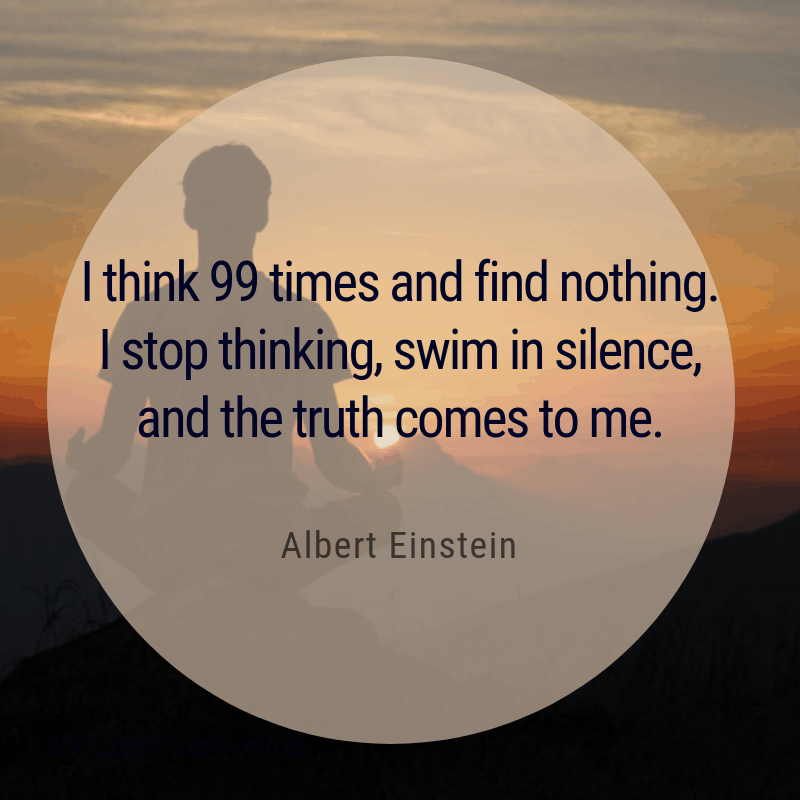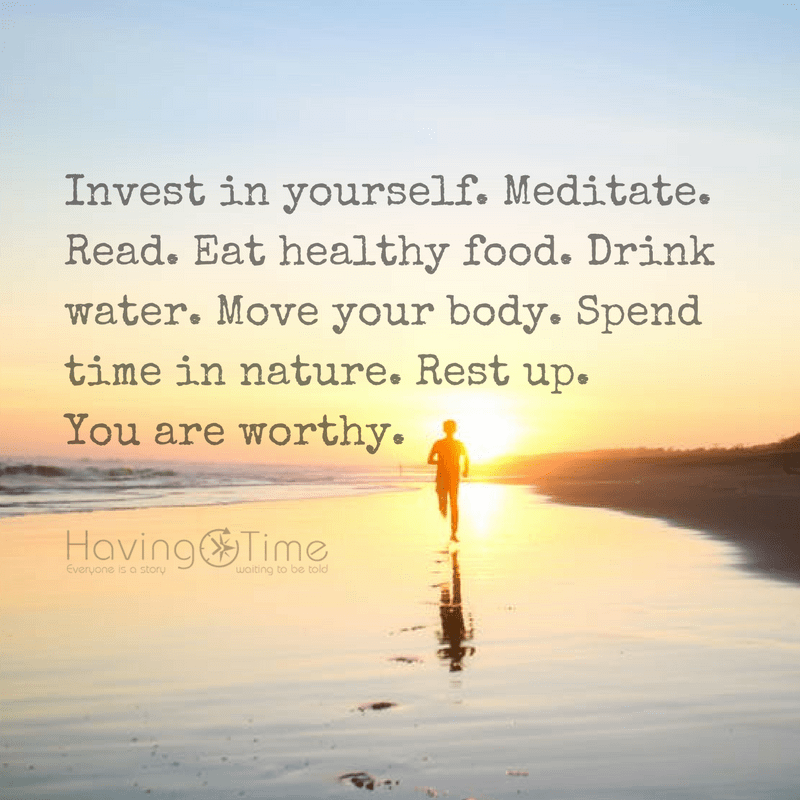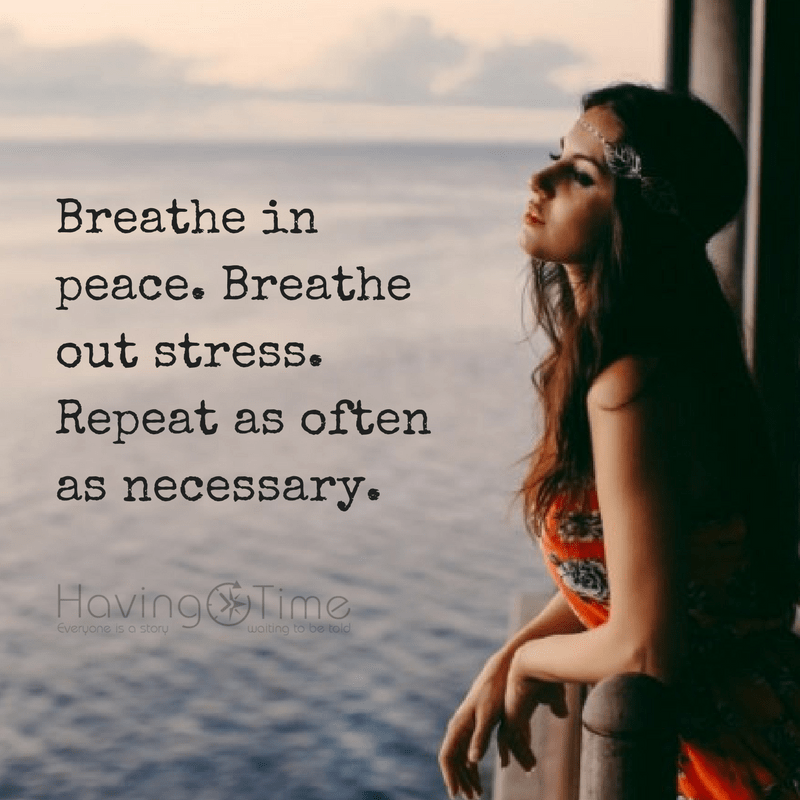Stress and anxiety are always going to be a part of our lives – it’s a fact of life. What matters most is how we deal with the stressful and anxious moments we experience. Luckily there are many things you can do to relieve stress and anxiety. As stress, fear and anxiety go hand-in-hand with high levels of the hormone adrenaline, we need to do things that relax us naturally as this lowers our adrenalin levels. The ten methods in this article will all help.

1. Slow Down Your Breathing
We tend to breathe too quickly and shallowly when stressed. Slowing down your breathing is an effective way to calm your body and mind and relieve stress almost immediately.
Breathe in through your nose for a count of five, and breathe out through your nose for the same count. Keep breathing at this pace until you feel calmer.
This technique soothes the nervous system and stops the rush of adrenalin. It calms your mind, relaxes your muscles and slows down your heart rate.
2. Improve Your Sleep Like Your Life Depends On it Because it Does
We don’t handle stress so well when we’re tired, it’s crucial to get enough sleep. Sleep is vital to our overall health and without adequate, good quality sleep you will soon feel stressed out, anxious and depressed.
Lack of sleep is one of life’s greatest stressors. If you find it hard to sleep there are a number of tactics you can try. If all else fails, see your doctor.
- Ensure your room is dark and not too hot or cold
- Don’t keep a TV or computer or other electrical equipment in your bedroom
- Check your mattress and pillows are comfortable
- Try to keep to a regular bedtime – it’s best to be asleep before midnight
- Start to wind down an hour or two before bedtime – read or take a bath
- Have a small snack before you go to sleep – if you are hungry this can keep you awake
- Sprinkle lavender oil on your pillow to help you relax
- Drink a cup of hot milk or cocoa
- Try breathing exercises (see the previous section)
- Get some exercise during the day but don’t exercise less than 3 hours before your bedtime
- Visit your health store and try some natural and herbal remedies for insomnia. Valerian is good for sleep problems.
3. Optimize Your Diet
What you eat is also very important.
If we eat junk food we are likely to feel below par – we are effectively putting our bodies under a lot of physical stress by eating sub-standard food.
A healthy diet is essential for a healthy body and a healthy body can handle stress and anxiety more effectively. So try to eat fresh fruit and vegetables, lean protein (chicken, fish, tofu, etc.) and healthy fats (nuts, seeds, avocado, fish, etc.) and drink plenty of water.
Don’t skip meals as low blood sugar caused by a lack of food can make your anxiety levels rocket.
Low blood sugar can also cause your adrenals to pump out a lot of adrenalin to compensate for little nourishment. All in all, not eating is bad for you, especially when you are stressed, because stressful situations use up more energy than usual and therefore you actually require a few more calories.
4. Supplement Your Diet with Extra Vitamins and Minerals
Even a super healthy diet and a very healthy anxiety-free person needs vitamins and minerals – our modern diets and methods of food production are no longer as vitamin and mineral-dense as they used to be.
Therefore, it’s vital you “top up” what you eat with a multivitamin.
Here are the best supplements for treating anxiety and stress:
- A high-strength multi-vitamin with A, B, C, D and E vitamins
- Calcium – helps with anxiety and sleep problems
- Magnesium – helps with depression and anxiety
- Zinc – helps with sleep problems and lack of appetite
- Chromium – to balance your blood sugar levels
- Folic acid – helps with depression and anxiety
- Omega 6 oils such as evening primrose, borage (starflower) and omega 3 oils such as fish oils or flaxseed have been shown to reduce anxiety.
5. Alleviate Stress with Herbs
There are certain herbs that are useful for dealing with anxiety.
As mentioned before, Valerian is good for insomnia and lavender oil is very relaxing.
- Ginseng is great for relieving stress and you might find peppermint oil or tea helpful if your stomach feels upset and ginger is great for nausea.
- Chamomile is a wonderful relaxant
- St John’s Wort is helpful for mild depression (women taking the contraceptive pill should not use this herb).
There are many aromatherapy remedies and homeopathic formulas specially formulated to help alleviate stress – visit your local health store and see what they offer.
6. SPORTIfy!
Exercising might feel like the last thing you want to do when you’re anxious and stressed. It can feel extremely hard to find the energy, let alone the motivation.
However, gentle exercise is the perfect way to de-stress your body and divert your mind from how you’re feeling.
All you need to do is take a walk around the block (or jog, if you’re up to it), or do some simple stretches. Start small and build up the amount of time and intensity of your exercise routine. But don’t push yourself too hard too soon.
A healthy body can handle stress more effectively, so try to make exercise a regular part of your week.
7. Give Meditation a Go
Our thoughts control our feelings, and often when we’re anxious our thoughts are filled with fear and negativity. One way to calm down the mind and calm down our negative thoughts is to meditate.
You don’t have to be affiliated to any religious doctrine to meditate and you don’t have to sit for hours in the lotus position humming Om while surrounded by burning joss sticks and candles!
All you need to do is find somewhere quiet to sit comfortably or lie down and focus on your breathing.
Breathe in through your nose and out through your mouth, and focus on the regular inhalation and exhalation of your breath. Thoughts will come into your mind, just let them come and go and focus on your breathing.

You’ll probably find that thoughts will persistently flit in and out of your mind and that’s OK. The more often you meditate, the less and less those thoughts will bother you. And the more stress-free your life will become.
8. Keep a Journal
Journaling is an excellent way to vent your emotions and thoughts in a safe, private space. It’s also a great way to monitor your feelings, stress levels and progress.
All you need is a notebook and pen or, if you prefer, a separate computer file. However, the act of writing with a pen on paper is better – you are likely to feel more in touch with your feelings if you use paper and pen. Whatever method you use, the vital thing is to ensure your journal is private and for your eyes only.
You don’t have to write every day. See it as a tool to help you deal with your stress, as well as work through problems, dreams and hopes whenever you feel the need. It’s a great way to clear the mind and also work out what is important to you.
If writing is not your “thing”, you can keep a drawing sketchpad instead and use art as a means to express your thoughts and feelings. Do whatever feels right for you.
9. Enjoy Downtime
Make sure you have adequate amounts of time to relax and unwind.
We all need downtime to simply relax and enjoy recreational activities, whether that’s reading a book, knitting, playing a musical instrument or a sport.
Not only is this enjoyable, but it’s essential for stress management. Just make sure you don’t schedule too many activities in your week. Balance is the key.

10. Build Your Support Network
Our relationships have a huge impact on how we feel (and vice versa). If you don’t feel your partner, family or friends are supporting you in the right ways, or are actively and intentionally making your anxiety worse, you need to change your relationships with them.
Now, that doesn’t mean you must sever ties with certain people. Only you can judge and decide whether it’s in your best interests to do so. It may simply be a case of seeing them on a less regular basis.
You may find that limiting your time around certain people is all you need to get the breathing space required to feel less stressed. However, you may also need to take more drastic action.
Before you consider taking any action it’s probably best to seek support outside your relationships and find a reputable therapist or counselor. An “outsider” is often the best person to confide in as they are impartial and objective and can see the “bigger picture” more clearly.
Only choose therapists who have accreditation and are members of recognized associations, and have received full training. Always check their credentials.

Managing stress means achieving a balance in your life. Be kind to yourself. There will always be stressors, but now you have a set of proven techniques that will eliminate your anxiety and stop you from feeling so stressed in the future.
Being able to cope effectively with stress is an important life skill. How we handle stress in our life is more important than the source of stress. So use the methods listed above, and you’ll soon find that you are controlling your stress, not the other way round.
photo source | pexels + giphy




